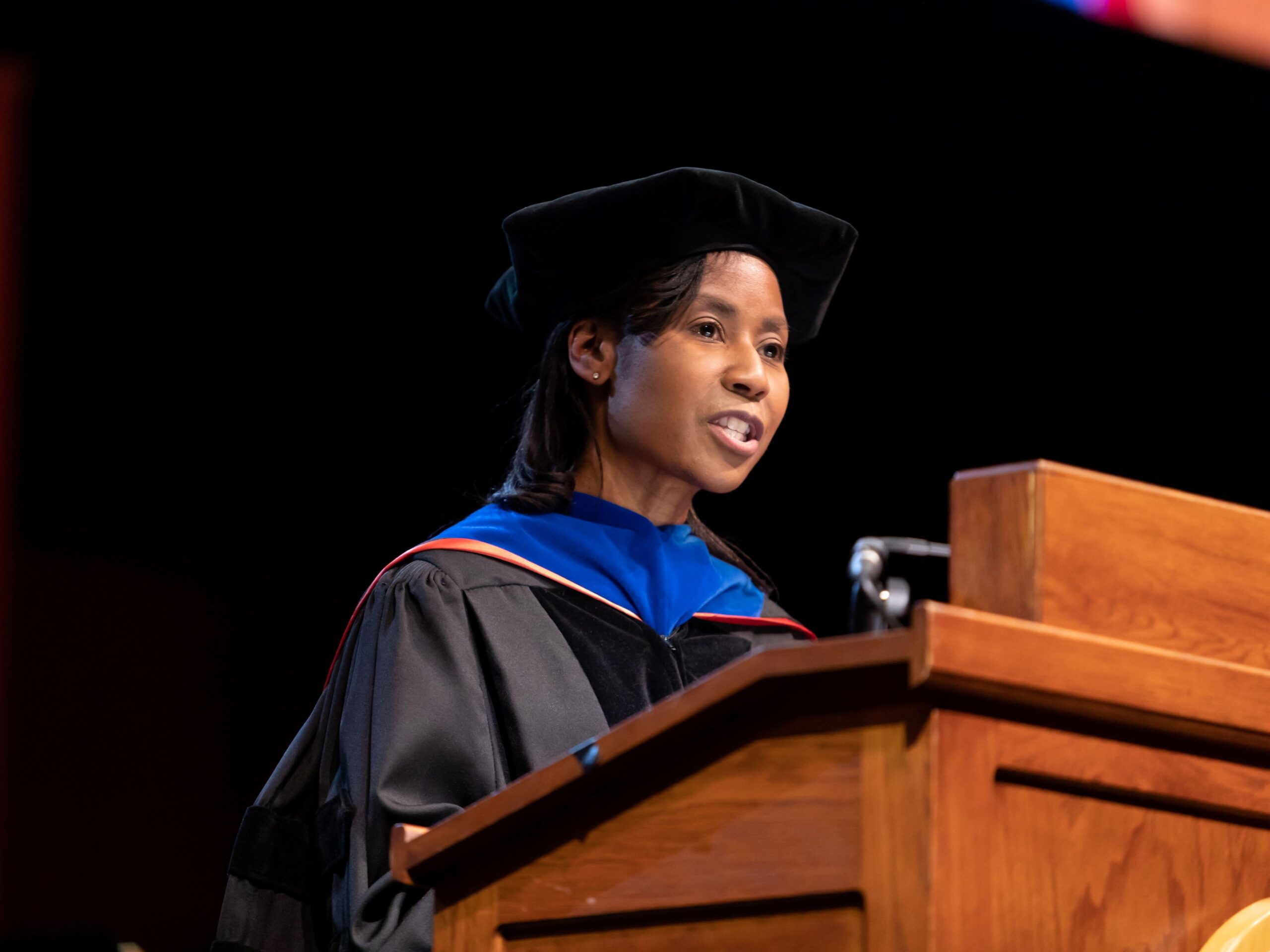
When it comes to achieving career goals, Stephanie Wilson is a great example to follow.
She has taken part in three space missions as a NASA astronaut, spending a combined 42 days in space during that time. She currently serves as the deputy chief for all assigned NASA crews. She also is eligible for flight assignment to return to the space station, or maybe even land on the moon. Last week, she landed in Austin to give the keynote address at the 2023 Cockrell School of Engineering Undergraduate Commencement Ceremony.
Wilson earned her master’s in aerospace engineering from UT Austin in 1992. She went on to NASA’s Jet Propulsion Laboratory, as a member of the attitude and control subsystems team for the Galileo spacecraft, and later was selected as an NASA astronaut in 1996.
In her speech to the nearly 1,400 Cockrell undergraduates getting their degrees, and their families, Wilson highlighted several skills, beyond technical capabilities, that are crucial to becoming a good engineer.
Communication
During her time in space, communication was key for Wilson. Part of her work involved the continued development of the International Space Station, which has a dedicated crew of people continuously living there, conducting research in a variety of areas including, biology, biotechnology, human physiology, material science Earth and planetary science and more.
Communicating with the crew in space, as well as the many other key groups who make every mission possible, is an integral part of the job for an astronaut. The ability to communicate well with many different types of stakeholders from a variety of backgrounds is important in all areas of engineering.
“If you are a good communicator, that will help you frame the problem in a way that is understandable to your team.”
Stephanie WilsonAlumna, Department of Aerospace Engineering and Engineering Mechanics
Leadership and Followership
Learning to lead and honing leadership style is a common refrain most graduates will hear as they head off into their careers. But, not everyone can be a leader all the time.
Wilson recommend graduates develop their leadership style, but don’t neglect the importance of being a follower when the situation demands it as well. Hierarchies can be fluid, so the ability to shift between leader and follower is an important skill.
“In space flight, in some cases, the leadership role is well established with the commander, and in some cases the leadership role changes by task,” Wilson said. “Because of this, as astronauts, we have to be able to seamlessly flow between being a good leader and a good follower.”
Self-care and Team-care
A great teammate can anticipate what their colleagues need and get it for them to help solve a problem. But, Wilson said, team-care doesn’t work without self-care.
Exercise, sleep, eating well – all the things most undergraduates don’t have much time for – are critical to self-care. Early on in their careers, Wilson said, it is important for graduates to strike a balance that allows for self-care, which will help them become a better teammate at work.
“To be able to provide team-care, you have to employ good self-care,” Wilson said. “These two things are interdependent and balanced and lay the groundwork for a strong team that works well together.”
Teamwork
Wilson described an “Apollo 13-like moment” during her second trip to space, where she was part of a team attempting to move a solar array on the International Space Station to another location. While unfolding the array, one of the guide wires caused a tear.
To fix the problem, the team, comprising people with specialties in electrical engineering, spacewalking, robotics and mechanical engineering, had to quickly come together and find a solution to keep the station from losing power. With just the materials they had on hand, they created “cufflinks” that covered the tear, allowing them to fully reconfigure the solar array and ensure power to the station.
“This example highlights teamwork, but also brings together all of the skills that I have mentioned – good communication, self-care, team-care, leadership and followership,” Wilson said. “All of those core skills were utilized in bringing forward a successful outcome to the problem.”
Wilson closed her address with the following advice for the new graduates:
“All of your newly acquired collective knowledge is needed to meet the challenges of the future. We need you to solve the hard problems of tomorrow. As members of the class of 2023, you are well equipped to pursue your careers in your chosen fields of engineering and to become leaders who empower the future. I wish you the best of luck in your future endeavors, and I look forward to seeing what the future holds for you. May you follow your dreams and soar to new heights; may you achieve the impossible; and may you always remember where you spent your influential and instrumental years here at The University of Texas, the Cockrell School of Engineering. Congratulations to the class of 2023! Thank you, and Hook ‘Em!”
